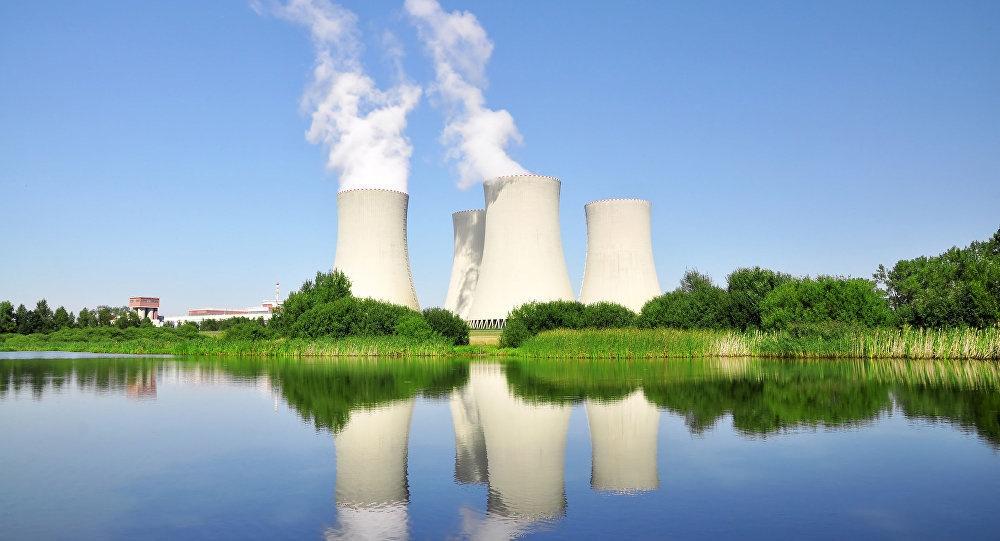Legalizing the foundation for nuclear power development

Atomic Energy Law (amended) will create legal corridor for development of nuclear power in Vietnam.
On behalf of the Ministry of Science and Technology, Deputy Minister Le Xuan Dinh introduced the general content and renovative spirit of the Law on Atomic Energy (amended). Passed by the National Assembly with an almost absolute rate (99.9%) on June 27, 2025, this law not only amends and supplements but also comprehensively restructures the legal system regulating the field of atomic energy.
The Law consists of 73 articles, divided into 8 chapters, regulating contents from the development and application of atomic energy to ensuring radiation safety, nuclear safety and security, management of nuclear power plants, research reactors, incident response, compensation for damage, nuclear inspection, and organization of the state management apparatus.
This is a step to institutionalize the Party's major policies, especially the Resolution on ensuring national energy security and developing nuclear power as an important, eco-friendly baseload power solution, contributing to achieving the goal of net zero emissions by 2050.
New breakthroughs
Nuclear power is a strategic component of national energy security.
The law, for the first time, clearly affirms the role of nuclear power as a strategic element in the national energy master plan. Not only is it a stable source of electricity, but nuclear power is also identified as “green electricity”, with the potential to contribute greatly to the goal of reducing greenhouse gas emissions.
The important new point is that the Law has created a solid legal corridor to restart nuclear power projects in Vietnam, especially the Ninh Thuan Nuclear Power Plant project with modern technology such as generation III+, IV reactors, and small modular reactors (SMR) - a type that is highly appreciated internationally for its flexibility and safety.
Comprehensive life cycle management of nuclear power plants
The law devotes a separate chapter to managing the entire life cycle of nuclear power plants - from site survey, design, construction, operation, to decommissioning and dismantling. These regulations are designed based on strict standards of the International Atomic Energy Agency (IAEA), ensuring Vietnam's deep integration into the international monitoring mechanism.
Strengthening independent monitoring and inspections
A separate chapter on nuclear inspections is included in the law for the first time, demonstrating the commitment to the peaceful use of nuclear energy, in accordance with the Treaty on the Non-Proliferation of Nuclear Weapons (NPT). The law also clarifies the role of the National Nuclear and Radiation Safety Authority - an independent organization with the functions of technical monitoring, licensing, and incident response throughout the life cycle of nuclear facilities.
Encouraging socialization and technology mastery
The Law expands space for socialization, especially in applications of nuclear energy other than power generation, such as medicine, agriculture, industry, etc. Instead of comprehensive subsidies, the Law classifies risks to have reasonable support policies, encouraging the participation of enterprises, research institutes, and scientific and technological organizations
A notable highlight is the orientation of localization and mastery of nuclear technology. The Law clearly states the goal of developing the domestic nuclear industry, prioritizing investment in manufacturing, monitoring, and safety assessment equipment, moving towards mastering SMR reactors and new generation nuclear power technology.
Comprehensive digital transformation in nuclear energy management
The law requires the establishment of a national database on nuclear energy, creating a digital infrastructure for licensing, monitoring, inspection, reporting, and controlling the import and export of nuclear materials. This is an inevitable step to modernize management, minimize risks and ensure transparency.
The Law on Atomic Energy (amended) is the result of a thorough study and assessment of international experience, reflecting Vietnam's determination to develop modern and safe energy, while demonstrating a strong commitment to the international community on nuclear non-proliferation and sustainable development.
In the context of global energy transition, with pressure on energy security and greenhouse gas emission reduction, this law will be a key legal tool to realize the strategy of developing nuclear power in Vietnam, a green, stable energy source that is suitable for new technology trends.
The Law on Atomic Energy (amended) will take effect from January 1, 2026.
Translator: Mạnh Hùng
Share